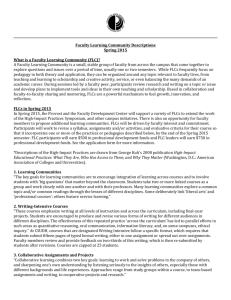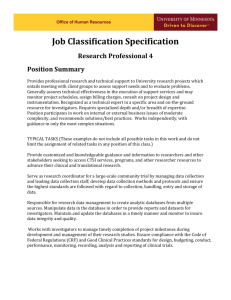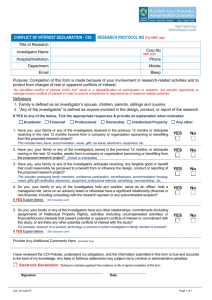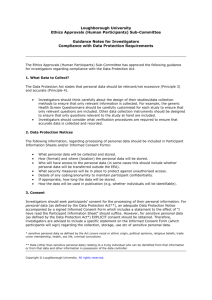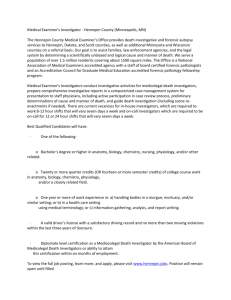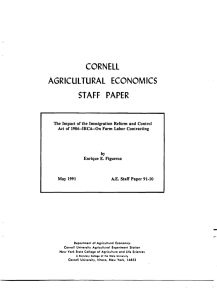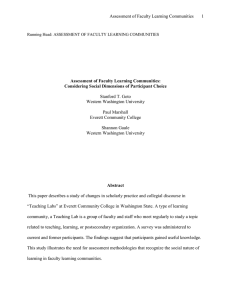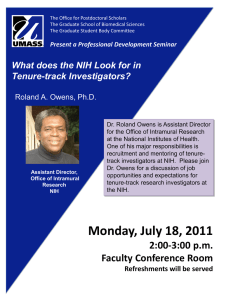farm worker protection results fy 13-14
advertisement
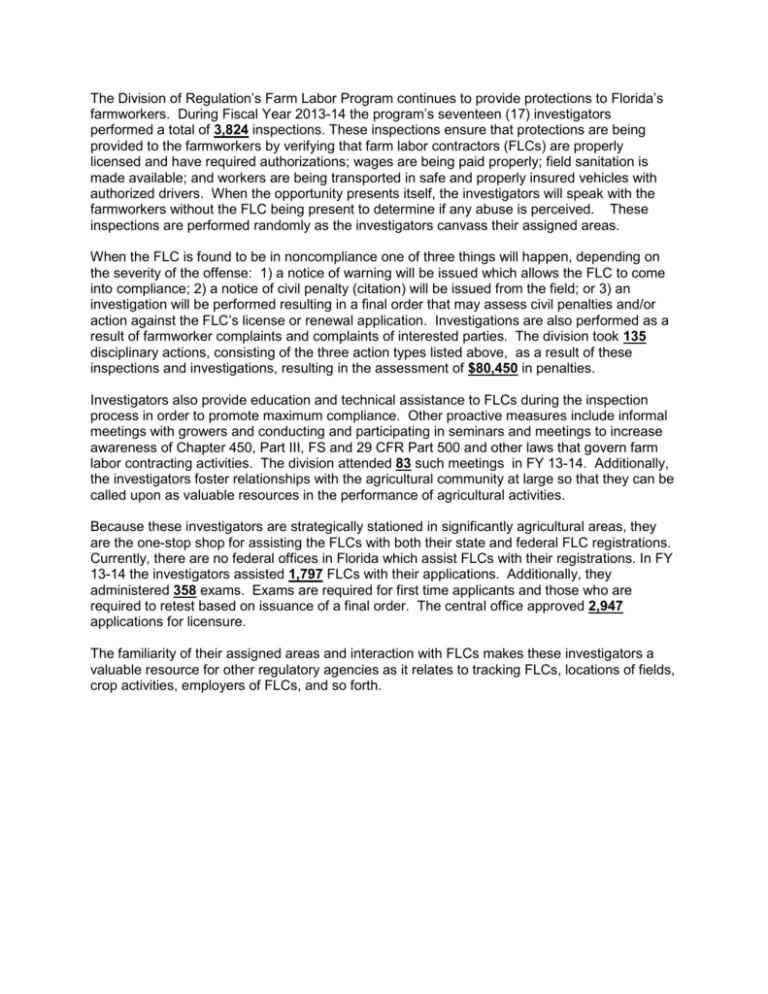
The Division of Regulation’s Farm Labor Program continues to provide protections to Florida’s farmworkers. During Fiscal Year 2013-14 the program’s seventeen (17) investigators performed a total of 3,824 inspections. These inspections ensure that protections are being provided to the farmworkers by verifying that farm labor contractors (FLCs) are properly licensed and have required authorizations; wages are being paid properly; field sanitation is made available; and workers are being transported in safe and properly insured vehicles with authorized drivers. When the opportunity presents itself, the investigators will speak with the farmworkers without the FLC being present to determine if any abuse is perceived. These inspections are performed randomly as the investigators canvass their assigned areas. When the FLC is found to be in noncompliance one of three things will happen, depending on the severity of the offense: 1) a notice of warning will be issued which allows the FLC to come into compliance; 2) a notice of civil penalty (citation) will be issued from the field; or 3) an investigation will be performed resulting in a final order that may assess civil penalties and/or action against the FLC’s license or renewal application. Investigations are also performed as a result of farmworker complaints and complaints of interested parties. The division took 135 disciplinary actions, consisting of the three action types listed above, as a result of these inspections and investigations, resulting in the assessment of $80,450 in penalties. Investigators also provide education and technical assistance to FLCs during the inspection process in order to promote maximum compliance. Other proactive measures include informal meetings with growers and conducting and participating in seminars and meetings to increase awareness of Chapter 450, Part III, FS and 29 CFR Part 500 and other laws that govern farm labor contracting activities. The division attended 83 such meetings in FY 13-14. Additionally, the investigators foster relationships with the agricultural community at large so that they can be called upon as valuable resources in the performance of agricultural activities. Because these investigators are strategically stationed in significantly agricultural areas, they are the one-stop shop for assisting the FLCs with both their state and federal FLC registrations. Currently, there are no federal offices in Florida which assist FLCs with their registrations. In FY 13-14 the investigators assisted 1,797 FLCs with their applications. Additionally, they administered 358 exams. Exams are required for first time applicants and those who are required to retest based on issuance of a final order. The central office approved 2,947 applications for licensure. The familiarity of their assigned areas and interaction with FLCs makes these investigators a valuable resource for other regulatory agencies as it relates to tracking FLCs, locations of fields, crop activities, employers of FLCs, and so forth.


